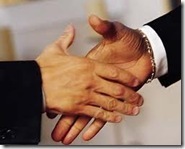Thomas A. Freese's Blog, page 17
March 8, 2012
PARAPROSDOKIANS…
(Winston Churchill loved figures of speech (Paraprosdokians) where the latter part of a sentence or phrase is surprising or unexpected; and frequently humorous. Here are some examples.
1. Where there's a will, I want to be in it.
2. The last thing I want to do is hurt you. But it's still on my list.
3. Since light travels faster than sound, some people appear bright until you hear them speak.
4. If I agreed with you, we'd both be wrong.
5. We never really grow up, we only learn how to act in public.
6. War does not determine who is right; only who is left.
7. Knowledge is knowing that a tomato is a fruit. Wisdom is knowing not putting it in a fruit salad.
8. They begin the evening news with 'Good Evening,' then proceed to tell you why it isn't.
9. To steal ideas from one person is plagiarism. To steal from many is research.
10. Buses stop in bus stations. Trains stop in train stations. On my desk is a work station.
11. I asked God for a bike, but I know God doesn't work that way. So, I stole a bike and asked for forgiveness.
12. When filling out an application,where it says, 'In case of emergency,notify:' I put 'DOCTOR.'
13. I didn't say it was your fault, I said I was blaming you.
14. It's a small world, but I wouldn't want to have to paint it.
15. If you ate pasta and antipasta a the same time, would you still be hungry?
16. A clear conscience is the sign of a fuzzy memory.
17. You do not need a parachute to skydive. You only need a parachute to skydive twice.
18. Money can't buy happiness, but it sure makes misery easier to live with.
19. Don't argue with an idiot. He will drag you down to his level and beat you with experience.
20. I used to be indecisive. Now I'm not so sure.
21. You're never too old to learn something stupid.
22. To be sure of hitting the target, shoot first and call whatever you hit the target.
23. Nostalgia isn't what it used to be.
24. Change is inevitable, except from a vending machine.
25. Going to church doesn't make you a Christian any more than standing in a garage makes you a car.
March 3, 2012
You Must be Willing to Say, “No.”
Not every opportunity is good for both parties, and thus not every deal is worth chasing. But, be careful disqualifying potential opportunities too early. Sometimes you have to say "No" before you can come to terms.
One of my best current clients (at first) rejected almost every point in the engagement agreement we use to schedule and confirm QBS events. My price was too high, they didn’t want to provide a wireless lapel microphone, their company’s expense policy was overtly stringent, and host of other gotchas.
My initial instinct was to try and work through the details in order to find common ground that would allow us to move forward. "There is no middle ground," was the response I got from the Development Manager. So, after pondering the predicament for a couple hours, I sent an email respectfully declining the opportunity.
My wife suggested that I was crazy to walk away from such a big company. But to me, when it becomes clear that we are not working toward a mutual solution, I would rather decline the opportunity than have an unhappy customer.
Lo and behold, the client immediately came back to me apologizing for a "misunderstanding," and within a few minutes, we came to terms on literally everything in the contract. When I look back, I have experienced many situations where if I wasn’t willing to say, "No," the customer would not have been so quick to say, "Yes."
There are different ways to say, "No," however, which is why I dedicated an entire chapter in my second book to the concept of "Delivering Bad News Gracefully." (Excerpt below).
Delivering Bad News Gracefully
Particularly in larger deals, after you have already negotiated your best and final price, what do you do when the prospect starts hitting you up for additional discounts? Do you say, "No," or do you just cave in to every client request.
Giving prospects everything they ask for is a bad strategy because the more you give, the more they will want, until the deal becomes bad business for you and your company. But for salespeople, saying, "No," can be a frightening proposition because it represents that moment of truth in the sale where prospects will either move forward with a decision to purchase or turn their backs and walk away.
Therefore, sellers must know when giving a little extra will help to consummate a sale, and they also have to know when to say, "There is no more to give." This doesn’t make delivering the actual bad news any easier, however.
Saying "No" is difficult because it puts you on the other side of the argument. The prospect is essentially asking for your help, in the form of either a lower price or free add-ons, and you are essentially telling them, "No, I am no longer willing to help."
Communicating that you are "no longer willing to help" is not the message you want to convey at the end of a sale, especially when you are trying to make prospects feel comfortable enough to pull the trigger on a favorable decision. Fortunately there is an alternative, a way that allows you to deliver bad news gracefully.
The technique is simple. If a prospect asks for something that is unreasonable or beyond what you are willing to provide as part of the sales transaction, you simply start your response with, "I’d be happy to…" For example, if you have already negotiated down to your best and final price and the prospect says, "We need another 10% off the price." With this technique, you can confidently begin your response saying, "I’d be happy to take another 10% off the price…" Now, this is not the entire answer because this analogy assumes that the buyer is asking for something you are not willing or able to provide.
Here’s the rest of the answer. After saying, "I would be happy to take another 10% off the price…", you simply add, "…but here’s the problem. We don’t have another 10% discount to give." I would reiterate that we want their business very much, but I would also be very direct in explaining that there was no extra ‘fluff’ built into the price from which to provide additional discounts.
The beauty of this technique is when you deliver the bad news gracefully you no longer have to be bad guy. You no longer have to be the one who says, "No, I am not going to help you." While this approach allows you to be very direct in communicating that there is no extra room for discounting, you are softening the blow. You can still provide value to your customers by suggesting, "Mr. Prospect, if budget is the issue, perhaps we could remove certain line items from the proposal to reduce the bottom line price." Or, "Since your project includes a second and third phase, perhaps we could bundle the entire purchase together to make the deal size bigger, which would give us some additional room to provide discounts."
This technique for delivering bad news gracefully has many practical applications in real life. For example: "Son, I would be happy to do your math homework for you…but here’s the problem. I’m not the one who will be taking the math test on Friday."
"Honey, I would be happy to buy you a new diamond necklace…but here’s the problem. In order to spend that much money on jewelry, we would have to dip into the kid’s college fund."
"Jim, I’d be happy to be an usher in church next Sunday…but here’s the problem. I will be flying in from London next Sunday morning."
You will find that there is a huge difference between saying, "No," and saying, "I would be happy to, but…" Simply re-phrasing your response allows you to deliver your bad news more gracefully. At the end of the day, you will be much more successful in sales (and in life) if you can position your words so you spend less time on the other side of the argument.
–Thomas A. Freese
You Must be Willing to Say, "No."
Not every opportunity is good for both parties, and thus not every deal is worth chasing. But, be careful disqualifying potential opportunities too early. Sometimes you have to say "No" before you can come to terms.
One of my best current clients (at first) rejected almost every point in the engagement agreement we use to schedule and confirm QBS events. My price was too high, they didn't want to provide a wireless lapel microphone, their company's expense policy was overtly stringent, and host of other gotchas.
My initial instinct was to try and work through the details in order to find common ground that would allow us to move forward. "There is no middle ground," was the response I got from the Development Manager. So, after pondering the predicament for a couple hours, I sent an email respectfully declining the opportunity.
My wife suggested that I was crazy to walk away from such a big company. But to me, when it becomes clear that we are not working toward a mutual solution, I would rather decline the opportunity than have an unhappy customer.
Lo and behold, the client immediately came back to me apologizing for a "misunderstanding," and within a few minutes, we came to terms on literally everything in the contract. When I look back, I have experienced many situations where if I wasn't willing to say, "No," the customer would not have been so quick to say, "Yes."
There are different ways to say, "No," however, which is why I dedicated an entire chapter in my second book to the concept of "Delivering Bad News Gracefully." (Excerpt below).
Delivering Bad News Gracefully
Particularly in larger deals, after you have already negotiated your best and final price, what do you do when the prospect starts hitting you up for additional discounts? Do you say, "No," or do you just cave in to every client request.
Giving prospects everything they ask for is a bad strategy because the more you give, the more they will want, until the deal becomes bad business for you and your company. But for salespeople, saying, "No," can be a frightening proposition because it represents that moment of truth in the sale where prospects will either move forward with a decision to purchase or turn their backs and walk away.
Therefore, sellers must know when giving a little extra will help to consummate a sale, and they also have to know when to say, "There is no more to give." This doesn't make delivering the actual bad news any easier, however.
Saying "No" is difficult because it puts you on the other side of the argument. The prospect is essentially asking for your help, in the form of either a lower price or free add-ons, and you are essentially telling them, "No, I am no longer willing to help."
Communicating that you are "no longer willing to help" is not the message you want to convey at the end of a sale, especially when you are trying to make prospects feel comfortable enough to pull the trigger on a favorable decision. Fortunately there is an alternative, a way that allows you to deliver bad news gracefully.
The technique is simple. If a prospect asks for something that is unreasonable or beyond what you are willing to provide as part of the sales transaction, you simply start your response with, "I'd be happy to…" For example, if you have already negotiated down to your best and final price and the prospect says, "We need another 10% off the price." With this technique, you can confidently begin your response saying, "I'd be happy to take another 10% off the price…" Now, this is not the entire answer because this analogy assumes that the buyer is asking for something you are not willing or able to provide.
Here's the rest of the answer. After saying, "I would be happy to take another 10% off the price…", you simply add, "…but here's the problem. We don't have another 10% discount to give." I would reiterate that we want their business very much, but I would also be very direct in explaining that there was no extra 'fluff' built into the price from which to provide additional discounts.
The beauty of this technique is when you deliver the bad news gracefully you no longer have to be bad guy. You no longer have to be the one who says, "No, I am not going to help you." While this approach allows you to be very direct in communicating that there is no extra room for discounting, you are softening the blow. You can still provide value to your customers by suggesting, "Mr. Prospect, if budget is the issue, perhaps we could remove certain line items from the proposal to reduce the bottom line price." Or, "Since your project includes a second and third phase, perhaps we could bundle the entire purchase together to make the deal size bigger, which would give us some additional room to provide discounts."
This technique for delivering bad news gracefully has many practical applications in real life. For example: "Son, I would be happy to do your math homework for you…but here's the problem. I'm not the one who will be taking the math test on Friday."
"Honey, I would be happy to buy you a new diamond necklace…but here's the problem. In order to spend that much money on jewelry, we would have to dip into the kid's college fund."
"Jim, I'd be happy to be an usher in church next Sunday…but here's the problem. I will be flying in from London next Sunday morning."
You will find that there is a huge difference between saying, "No," and saying, "I would be happy to, but…" Simply re-phrasing your response allows you to deliver your bad news more gracefully. At the end of the day, you will be much more successful in sales (and in life) if you can position your words so you spend less time on the other side of the argument.
–Thomas A. Freese
January 27, 2012
Mark Your Calendar: May 3-4th
Only twice each year Tom Freese hosts an open enrollment QBS Methodology Summit (in Atlanta), which becomes a boot-camp  style introduction to QBS for some participants, while serving as a QBS refresher to others. The second and final event for 2012 will occur on May 3 – 4th and will consist of a full day of training on Thursday, and we will finish by 1:00pm on Friday May 4th, so people can easily travel back to their respective home bases.
style introduction to QBS for some participants, while serving as a QBS refresher to others. The second and final event for 2012 will occur on May 3 – 4th and will consist of a full day of training on Thursday, and we will finish by 1:00pm on Friday May 4th, so people can easily travel back to their respective home bases.
This event is open to the public and we will begin taking registrations approximately 8 weeks in advance of the event so look for a posting on the QBS main website. Early enrollment is $595 versus the standard tuition of $750 the week of the event. The last four open enrollment QBS events have been completely SOLD OUT, so I recommend you secure your seats early.
Please call our office with questions at (770) 840-7640.
Next Public QBS Event: May 3-4th
Twice per year (in Atlanta) Tom Freese hosts an open enrollment QBS Methodology Summit that serves as a boot-camp  style introduction to some participants, while serving as a QBS refresher to others. We will have a full day of training on Thursday May 3rd, and then finish by 1:00pm on Friday May 4th, so people can easily travel back to their respective home bases.
style introduction to some participants, while serving as a QBS refresher to others. We will have a full day of training on Thursday May 3rd, and then finish by 1:00pm on Friday May 4th, so people can easily travel back to their respective home bases.
Registration for this event will begin approximately 8 weeks in advance of the event dates so look for a posting on the QBS website. Early enrollment is $595 versus the standard $750 tuition the week of the event. The last four open enrollment events have been completely SOLD OUT so I recommend you make a note to secure your reservations early.
Please call our office with questions at (770) 840-7640.
January 16, 2012
Feedback from January Summit
"This training wasn't just theory. We heard specific examples and I really liked this aspect of it."
"The QBS training was more precise with specific tips, not just the generic information I've gotten with other programs."
"Gold Medals vs. German Shepherds is a technique I learned that was a favorite that I know will make a big impact on my sales moving forward."
"Very different and beneficial approach to selling. I loved the conversational layering model."
"This was by far the best training I've attended."
"I enjoyed the training very much! I truly feel I will benefit from this experience/training."
"The QBS methodology suits my selling style far better than any other training I've taken. "
"I feel I learned a lot about cold calling techniques that will really help me."
"The strategy that I believe was my favorite and that will prove to be the most helpful is leaving effective voice mails to increase call backs."
"I rated this class and the instructor all 10's!"
December 11, 2011
Can Your Dog Sell?
Selling is unmistakably the least taught profession in the world! Does anyone else think that's strange? Sales drives every company, not to mention the entire economy, yet we still rely on salespeople somehow knowing inherently "how" to sell. Maybe it's supposed to be in your DNA? 
Consider the amount of training necessary to become an architect, attorney, doctor, engineer, teacher, nurse, pharmacist or city planner. There is a minimum scholastic requirement followed by rigorous testing and continuing education. Whew! To say that you are a sales professional only requires that you print business cards.
Case in point: In the state of Georgia (my home state), you have to have a license to catch a fish, or own a dog, but you can sell many things including sophisticated products and services without any required training whatsoever. Note that I am NOT speaking out for more legislation. Just wanted to point out the parallel between skills development and your probability of success in sales.
November 23, 2011
Need a Good Closing Line?
The end of a month, quarter, or year usually brings along with it some pressure to wrap up pending sales transactions. Some trainers tout closing tricks or gimmicks as if they are sure-fire ways close the deal. I find that very few customers want to be tricked into buying a product or service. Closing is still an important skill set in sales, so here are a few tips that might help. 
First, closing a deal is not something that should sound self-serving. Anything that starts with "I would like to suggest that you…", invites more risk into the equation than value. A better approach would be to simply say, "Mr. Customer, would it make sense to ______?" Simply insert an appropriate next step, which could easily be wrapping up the transaction, and you are in a very good spot.
Rather than risk sounding like you are prematurely counting your chickens before they've hatched, you instead are inserting logic into the equation, where if it does make sense to take the suggested next step, then it's logical and reasonable to suggest moving forward. If not, you have a perfect opportunity to find out what might be holding up the decision.
Don't forget that deals need to be ready to 'be closed' before any suggestion to move forward with a transaction would be appropriate. Does the customer see and appreciate the full value of your product or service? Do they recognize the existence of multiple needs? Are the right people involved? do they have enough 'ammunition' to sell your proposed solution internally to their boss or approval committee?
Lastly, there's no edict that requires sellers to wait until the last minute to complete a transaction. In fact, with some deals, it's smart to give incentives to wrap up the transaction earlier rather than waiting until the eleventh hour. And, as some of you already know, if a December deal isn't pretty much iced by the 15th or 16th, then it's probably not going to happen. The "trick" is having candid conversations with customers early enough so they can then help you navigate the buying process mid-month as opposed to worrying over the holidays about whether Santa will put a bluebird in your stocking this year.
Thanksgiving…A Good Time to Recharge Your Batteries
Do you 'live to work' or work to live?'
For many professionals, a hard day's work efforts usually stem from a little of both. Especially for sellers, whose job it is to essentially help people and![gif_turkey002PR_c[1]](https://i.gr-assets.com/images/S/compressed.photo.goodreads.com/hostedimages/1381786311i/5297958.gif) communicate effectively, if you were to win the lottery jackpot tomorrow, a truly entrepreneurial salesperson would likely continue looking for opportunities to help people and communicate effectively in some way. It's in your nature.
communicate effectively, if you were to win the lottery jackpot tomorrow, a truly entrepreneurial salesperson would likely continue looking for opportunities to help people and communicate effectively in some way. It's in your nature.
Last month, our Canadian friends to the north celebrated their Thanksgiving in October. It's not surprising that their Thanksgiving holiday comes earlier, corresponding to their earlier harvest season. To us, it was just another day at the office. But they took a day, just like we will take a day off tomorrow to relax, reflect, and recharge. To me, Thanksgiving should be more than just a good excuse to get a day off from work. Rather, it's one of those times when we should take stock in our accomplishments, count our many blessings, and enjoy the fruits of the effort that you have invested over the last several months.
There's no doubt that success can be taxing on the body and spirit. It can also be empowering if you are able to enjoy it with those whom you care about the most.
Happy Thanksgiving from me and my family to you and yours!
Recharge Your Batteries
Do you 'live to work' or work to live?'
For many professionals, a hard day's work efforts stem from a little of both. Especially for sellers, whose job is essentially to help people and![gif_turkey002PR_c[1]](https://i.gr-assets.com/images/S/compressed.photo.goodreads.com/hostedimages/1381786311i/5297958.gif) communicate effectively, if you were to win the lottery jackpot tomorrow, if you are indeed a successful salesperson, I bet you would still want to continue helping people and communicating effectively in some way. It's in your nature.
communicate effectively, if you were to win the lottery jackpot tomorrow, if you are indeed a successful salesperson, I bet you would still want to continue helping people and communicating effectively in some way. It's in your nature.
Last month, our Canadian friends to the north celebrated their Thanksgiving. It's not surprising that their holiday comes earlier, corresponding to their earlier harvest season. They took a day, just like we will take a day off tomorrow. Ah, but Thanksgiving is not just a holiday or a good excuse to get a day off from work. Rather, it's a good time to take stock in your accomplishments, count your many blessings, and enjoy the fruits of the effort that you have invested over the last several months.
There's no doubt that success can be taxing on the body and spirit. It can also be empowering if you are able to enjoy it with those whom you care about the most.
Happy Thanksgiving from me and my family to you and yours!
Thomas A. Freese's Blog
- Thomas A. Freese's profile
- 2 followers



